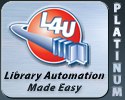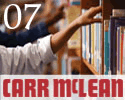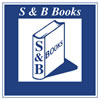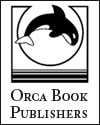Intellectual Freedom and Social Responsibility: Building Understanding
Toni Samek & Dianne Oberg
"A voice is a human gift; it should be cherished and used, to utter fully human speech as possible. Powerlessness and silence go together." Margaret Atwood
Toni Samek is Associate Professor in the School of Library and Information Studies at the University of Alberta, and the author of Librarianship and Human Rights: A 21st Century Guide (Chandos Oxford Publishing, 2007).
Dianne Oberg is Professor and Chair of the Department of Elementary Education at the University of Alberta, and co-author of the award-winning Focus on Inquiry: A Teacher’s Guide to Implementing Inquiry-based Learning (with J. Branch, Alberta Education, 2004).
Issue Contents
______________________________________________________
This Special Issue on Intellectual Freedom and Social Responsibility is the second on this theme. The first appeared as Volume 24, Issue 4 of SLIC. That first issue was such a potent contribution to library/education conversation that it resulted in a book titled Challenging Silence, Challenging Censorship: Inclusive Resources, Strategies and Policy Directives for Addressing Bisexual, Gay, Lesbian, Trans-Identified and Two-Spirited Realities in School and Public Libraries published by the Canadian Teachers Federation for two co-authors and in a Summer course at the University of Alberta taught by us. The course, EDES 501 Issues in Teacher-Librarianship: Intellectual Freedom and Social Responsibility, brought together 29 graduate students from across Canada and from countries abroad, including Japan, China and Ethiopia. The course drew attention campus-wide (see “Librarians are freedom fighters” says author, (http://www.expressnews.ualberta.ca/article.cfm?id=7769).
The papers presented in this Special Issue (and in a companion forthcoming Special Issue of Teacher-Librarian Today) are based on the final papers written by students in the course. The specific topics addressed by the papers are diverse: censorship, students’ privacy rights and in loco parentis, collection development with a social justice orientation, cuts to teacher-librarians as a threat to intellectual freedom, activist librarianship, and issues of peace and global education. One of the objectives of the course was to communicate effectively policy positions on intellectual freedom and social responsibility, through both oral and written means. These policy positions, at the local, national and international levels, are well represented in this Special Issue. We anticipate that the course will be offered again in Summer 2008 on the University of Alberta campus.
We knew there was a need for this course but we were uncertain as to how it would be received. We wondered of we would get enough registrants to even run the course. We filled two sections! By the end of the first day, we could feel some magic in the room. By the close of the final day on campus, we saw the beginnings of a new community committed to supporting the rights of children. Certainly, we, and many of the students, completed the course with a strong appreciation of the need to address the core values of librarianship in a significant way in education for teacher-librarianship. Certainly, also, we re-affirmed for ourselves the critical importance of the values of intellectual freedom and social responsibility as key conditions for the development of democratic education and citizenship in the Canadian and global context. We invite you to participate!
______________________________________________________
Copyright ©2007 Canadian Association for School Libraries | Privacy Policy | Contact Us
ISSN 1710-8535 School Libraries in Canada Online
|





Sponsors Welcome |
|
